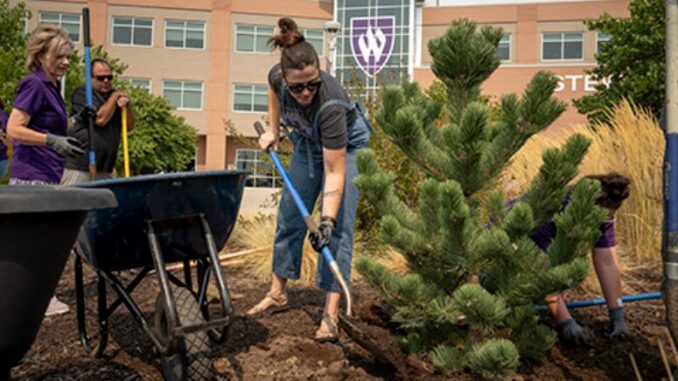
Significant Achievement: Weber State Receives Gold Rating for Sustainability Efforts
The Sustainability Tracking, Assessment & Rating System (STARS) is a self-reporting framework developed by the Association for the Advancement of Sustainability in Higher Education. It helps institutions evaluate their progress in five key areas: academics, engagement, operations, planning and administration, and innovation and leadership.
Since 2011, STARS has played a crucial role in guiding Weber State University (WSU) towards greater sustainability. Achieving a gold rating puts WSU a year ahead of its target to reach gold status by 2025.
In 2007, WSU committed to reducing fossil fuel use—significantly linked to greenhouse gas emissions and poor air quality—and aims to become carbon neutral. The university has transitioned over 40% of its buildings to electric heating systems, shifted over 13% of its fleet to electric vehicles, and installed numerous renewable energy systems. These initiatives have collectively reduced WSU’s total greenhouse gas emissions by 40%.
“We’re all aware of the poor air quality we often experience along the Wasatch Front,” stated Jennifer Bodine, WSU’s Energy & Sustainability Manager. “Weber State has made significant strides by cutting emissions and pledging to achieve carbon neutrality by 2040.”
Bodine emphasized that earning the STARS gold rating benefits not just the environment but also the university’s finances.
“Going green saves money,” Bodine noted. “We’ve saved the university over ** $ 27 million** in utility costs by adopting more efficient, carbon-free systems.”
Weber State has also integrated sustainability into its curriculum, offering 110 courses across all colleges that either include or focus on sustainability. More than 60% of departments now provide at least one sustainability course. These educational opportunities enable students and the community to foster more sustainable practices, according to Alice Mulder, director of the Sustainability Practices and Research Center at WSU.
“Weber is equipping students with the knowledge and skills necessary to tackle interconnected challenges related to clean energy, air quality, water, healthy communities, and economies,” Mulder explained. “As students join the workforce, they carry this knowledge and experience into various fields, including government, private sector, non-profits, and more.”
Weber State’s STARS report is available for public access.

Leave a Reply